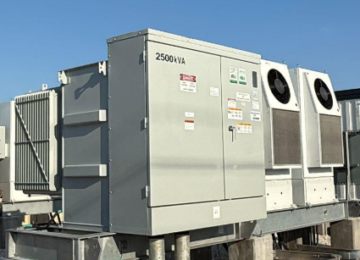Subsidy for Heat Storage at heat grids through WIS scheme
The Heat Networks Investment Subsidy (WIS)., part of the National EZK and LNV Subsidies Scheme, supports companies in the construction and expansion of energy-efficient heat networks in the Netherlands. With a budget of €200 million, available from Aug. 1, 2025, to Jan. 16, 2026, the scheme encourages the transition to sustainable heating and cooling, with the aim of accelerating natural gas-free solutions for existing buildings. The WIS focuses on projects that reduce greenhouse gas emissions to less than 25 kg CO₂ per GJ of heat supplied.
A major innovation in the scheme is the explicit support for thermal storage (heat storage). This includes systems that store excess heat for later use, increasing the efficiency of heat networks. Subsidy is available for investments in thermal storage as part of an energy-efficient heat grid, provided proven techniques are used. The subsidy for thermal storage is subject to a maximum aid intensity of 30% of the investment cost, with a cap of €4,000 per retail connection in existing construction. Small and medium enterprises can receive an increased aid intensity of 50% and 40%, respectively.
The successful integration of thermal storage in the WIS underscores the importance of storage technologies for the energy transition. In a recent room letter (December 2024) the Dutch government already emphasizes that thermal storage is essential to match fluctuating supply from renewable sources such as solar thermal, geothermal and waste heat to heat demand. Short-term storage, such as hot water buffers, and seasonal storage, such as thermal energy storage (CHP) or aquifers (ATES), play a crucial role here. Innovative techniques, such as thermochemical storage and phase transition materials, are also being explored, although these are still in the development stage.
In addition to the WIS, the government is working on additional incentives for thermal storage. This includes better anchoring storage in laws and regulations, such as the revision of the Heat Act, and exploring additional subsidy opportunities through schemes such as the SDE++. The National Local Heat Transition Program (NPLW) requires municipalities to include heat storage in local heat plans. In addition, the government is investing in pilots and collaborations to reduce costs and scale up promising technologies.
Energy Storage NL has long advocated the integral inclusion of heat storage in heat networks. In the study "The costs and benefits of heat storage in heat grids' in fact, Energy Storage NL and Invest-NL previously examined the social added value of combining heat storage with heat networks. The study showed that heat storage not only reduces the cost of supplied heat by €0.70 to €3.20 per gigajoule, but also makes the construction of heat networks more financially viable. ESNL sees adding heat storage to the WIS as a great result from this study.





